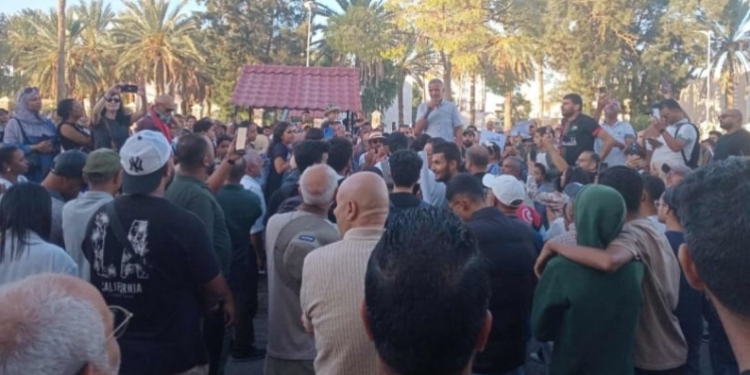Dozens of residents gathered in front of the governorate headquarters to demand urgent measures against the industrial pollution which poisons their daily lives. This movement is part of a growing citizen mobilization, while the courts postponed until November 13 the examination of the appeal aimed at suspending the activity of the Tunisian Chemical Group (GCT), the main accused of the environmental degradation of the region.
Persistent popular anger
The demonstrators, who came from different neighborhoods of Gabès and neighboring areas, brandished signs proclaiming: “Save Gabès! », “No to phosphogypsum! and “We want to breathe!” “. They denounce the continued release into the sea of toxic substances resulting from the processing of phosphate by the GCT, in particular phosphogypsum, an industrial waste heavily loaded with chemicals.
Read also
A case now in the hands of justice
The standoff between civil society and the Tunisian Chemical Group has taken a legal turn. The Gabès court of first instance was to examine a summary appeal requesting the immediate suspension of the activity of the industrial complex, but the hearing was postponed until November 13 at the request of the plaintiffs’ lawyers.
This postponement, perceived by some activists as a “delaying maneuver”, further delays the hope of a binding decision for the company. “Every day more, tons of additional waste are dumped into our sea,” denounces a member of the Stop Pollution association.
Read also
The latest rallies have not been without clashes. Six demonstrators arrested during previous protests appeared before the criminal court: two were fined 500 dinars, while the cases of the four others were postponed until December 3. Other cases involving young people, including minors, remain pending.
Despite these lawsuits, the mobilization does not weaken. Residents say they will continue to take to the streets until the GCT’s most polluting units are closed.
A fight for environmental survival
Gabès is the only city in the world where an oasis rubs shoulders with a chemical industrial complex. This paradox symbolizes the ecological emergency that its inhabitants are experiencing: threatened biodiversity, a sea choked by waste and weakened public health.
Local associations and several environmental experts are calling for a transition towards a sustainable development model, based on depollution, the development of natural resources and the creation of green jobs.
Read also








